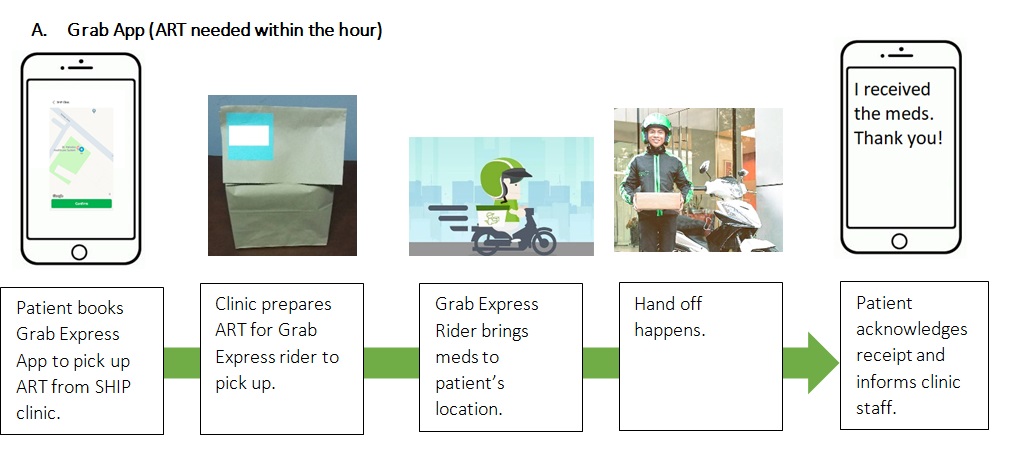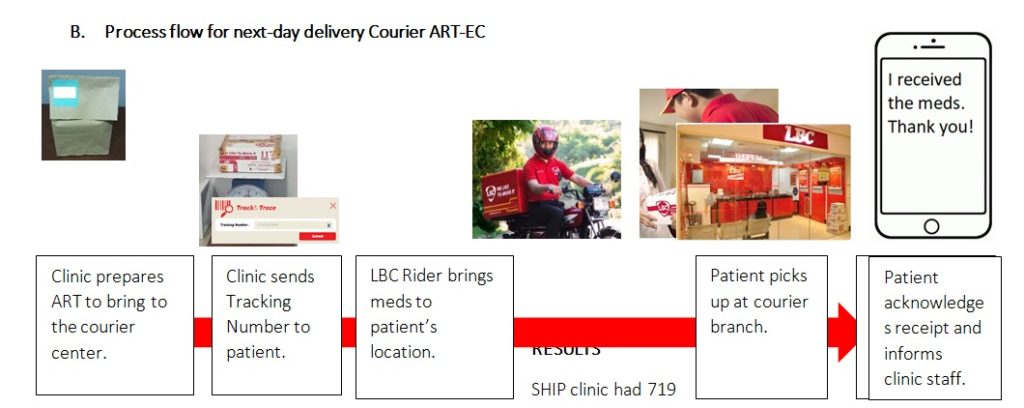BACKGROUND
The Philippines has the highest percent of increase of new HIV cases in Asia and the Pacific region from 2010-2016 at 133%.(Vera, 2018) The healthcare system cannot keep up with the growing number of new infection, and reports show that not everyone is on medication, despite the WHO guidelines recommending treatment for all. People on antiretroviral therapy (ART) are mostly suppressed and resistance rates in the country are at 10%, but data is only available for three big hospitals, and may not be reflective of the national state.Retention in care is key to achieving viral suppression, but in a society where stigma is strong, and where religion and traditions influence judgement, accessing HIV-related healthcare services may be challenging. Barriers to accessing services at each step of the care cascade exist in the Philippines at the individual, community, and institution level. (Wijngaarden, 2015)
SHIP Clinic was established in 2013 as an HIV primary care clinic that has provides testing, laboratory facilities, medical consultation, and antiretroviral dispensing, with the aim to bridge gaps in the HIV healthcare system. The first of its kind: a stand-alone satellite clinic, built by community members familiar with health institution-related stigma, high prices, and limited operating hours as key barriers. It is in this spirit that SHIP clinic generates innovative ideas to bring HIV healthcare within reach of those who need it.
SHIP Clinic started to offer in 2014 ART refill delivery via courier service to clinically stable clients and as needed medical consultation via telemedicine (ART-EC). Clients from Metro Manila, Visayas and Mindanao have benefited from the ART refill delivery via courier service as well as telemedicine via popular messaging apps such as Skype, Viber and Zoom. Initially offered to clients who reside outside the city or abroad and to clients who cannot make their appointments and run out of ART due to unforeseen circumstances. This service has not been documented since its inception; fortunately the International AIDS Society Differentiated Service Delivery project provided such an opportunity to explore the benefits of ART-EC beyond distance medicine, and possibly provide an escape from the everyday crippling traffic in the Metro Manila area that presents another barrier to healthcare access.
ART-EC
Clinically stable patients are seen at the clinic every 6 months for routine consultation, laboratory tests and ART refills. On routine follow up, the clinic case manager offers to clients the option to have their next follow up schedule as an e-consultation. The ART refills are provided as out-of-facility individual model. ART refills are delivered at the clients’ registered address by a local courier service, or picked up at a courier branch of the client’s choosing.


The openness of the clinic staff and clients to the idea of formally establishing the ART refill delivery service and telemedicine program is an important factor for the relatively modest success of this differentiated care model. While telemedicine is not new in the Philippines, this is possibly the first time that this service is formally offered to PLHIV. The past experiences of the SHIP clinic in providing similar services helped inform the establishment of protocols that the clinic staff should follow for the ART refill delivery service and telemedicine program.
RECOMMENDATIONS AND STEPS FORWARD
Differentiated care is very much needed in the Philippines, where the healthcare system is struggling to catch up with the rate of new infections and fallouts occurring at each step of the care cascade. ART-EC is just one of the many venues where bringing access closer to the patient breaks down barriers, but also deals with the seemingly mundane issue of being stuck in Metro Manila traffic and wasting a whole day’s worth of travel to the clinic.
It has had some good feedback with the patients, but maintaining confidentiality all throughout the service should be better observed. It is also worthwhile to explore the long-term benefits of telemedicine and easier refills in the clinical outcome, quality of life, self-stigma and mental health, and retention in care of PLHIV in the Philippines.
We envision a government-supported courier service or pop-up refill centers catering to all treatment providers can be established nationwide.
